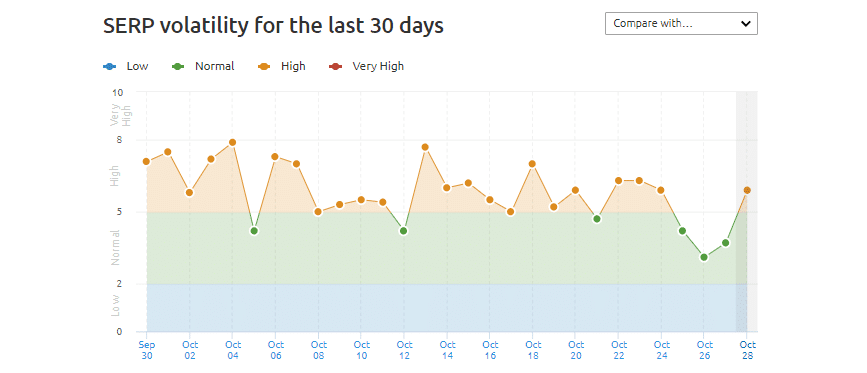There’s a strong chance that you understand how to use Google Search, but its inner workings are still a mystery to the casual searcher. To make things simple, Google needs to complete three main steps to bring you results:
- Crawl – Identify as many pages as possible across the web
- Index – Keep a record of all pages they encounter while crawling
- Rank & Serve – Based on your search, they will find relevant results from their index and display them as a ranked list
If there is a problem with any one of these steps, it can have a significant effect on the results you see (or should see).
As of September 2020, Google has been experiencing some problems with step two. Here’s a breakdown of what they’ve released on the matter, and how it could affect your business.
September 2020 Indexing Issues
On October 1st, 2020 Google announced on Twitter that they identified and were working to resolve a mobile-indexing issue and a separate canonicalization issue within their systems. They finished their initial announcement by plainly stating, “In either case, pages might not be indexed….”
The first issue regarding mobile-indexing apparently began in early September, but it’s impact didn’t peak until the end of the month. Google estimates that this issue affected 0.2% of their index.
The second indexing issue regarding canonical pages also affected 0.02% of their index and was said to have started around September 20, 2020.
MARION offers Dallas, Austin, and Houston SEO services, so understanding the impact of these indexing issues is critical to the success of our partners.
How Many URLs Were Affected?
While listing off fractions of a percentage have the psychological effect of downplaying the impact of these errors, the following numbers should give you some perspective. In November 2016, Google claimed they had knowledge of over 130 trillion pages. This is sure to be much larger at the time of this writing, but using this figure we can see that:
- The mobile-indexing issue would have affected 260,000,000,000 URLs
- The canonical issue would have affected 26,000,000,000 URLs
Keep in mind that issues with canonicals include sampling bias in the first place. The reason being that only experienced webmasters implement canonical links on their pages or syndicate their content in a way that requires canonicals.
This means that there are fewer total use cases of canonicals in Google’s index, so 0.02% of the index including canonical errors is likely larger than the 0.2% of the index that includes mobile-indexing issues.
Indexing Issues Effectively Resolved in October
Google later reported that the mobile-indexing issue was resolved on October 8th, “with about 99% of the URLs restored.” This leaves a mere… 2,600,000,000 URLs that are still experiencing issues.
On October 14th, Google Webmasters Twitter account announced that the Google Search Console feature that lets webmasters request the indexing of a URL was disabled, “in order to make some infrastructure changes.” However, they specified that it will be available again, “in the coming weeks.” Thus, no clear timeline was given, but I don’t believe these are isolated events.
The last update in the chain of events came on October 19th, with Google saying that the canonical issue was resolved on 10/14, “With about 99% of the URLs restored. We expect the remaining edge cases will be restored within a week or two.” The 260,000,000 edge cases should be buttoned up in no time.
Despite these indexing issues being resolved, volatility in the search engine results pages (SERPs) according to SEMrush appears to have been higher than normal for 23 of the past 30 days. Believe it or not, the 30 days preceding what you can see in this graph actually looked worse.
It’s common knowledge that Google makes several updates to their algorithm every day, but with the indexing issues resolved, we shouldn’t be seeing this much volatility on a regular basis.
My professional experience has shown that Google will generally test core algorithm updates with a soft launch, then tweak them to hedge any unintended consequences and fully launch them several weeks later. My gut tells me that a larger than normal algorithm update test was made in early September 2020 that accidentally broke their systems, and big changes are yet to come.
Need Guidance from Digital Marketing Pros?
There’s a good chance that you weren’t aware of these SEO developments until now. Following the latest search engine trends can be an exhausting task, but one that MARION’s team can take off your busy schedule.
MARION is a trusted Texas marketing agency that has been serving local businesses for nearly 40 years. Our Dallas, Houston, and Austin SEO services have evolved with the times to ensure our marketing partners have campaigns that align with the latest search engine developments.
Schedule a free, no-obligation marketing consultation with MARION today to learn how we can help your website and SEO efforts succeed despite a shifting landscape.

